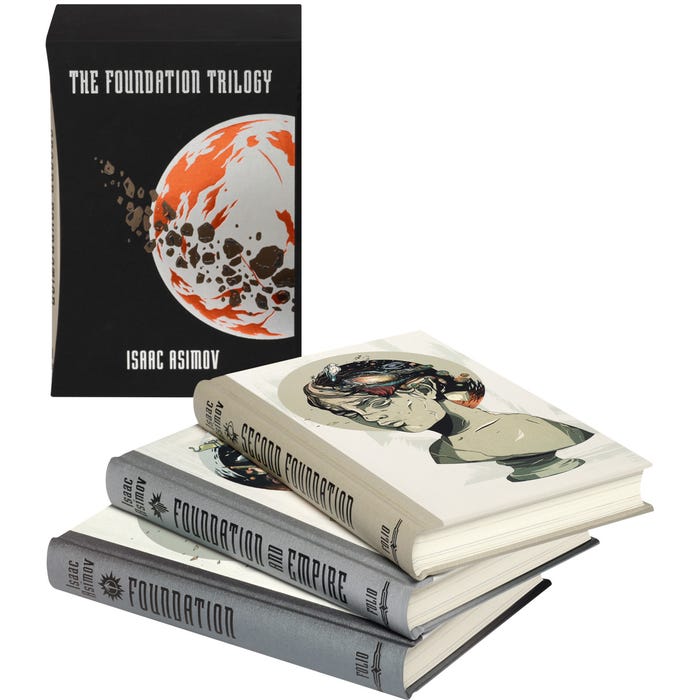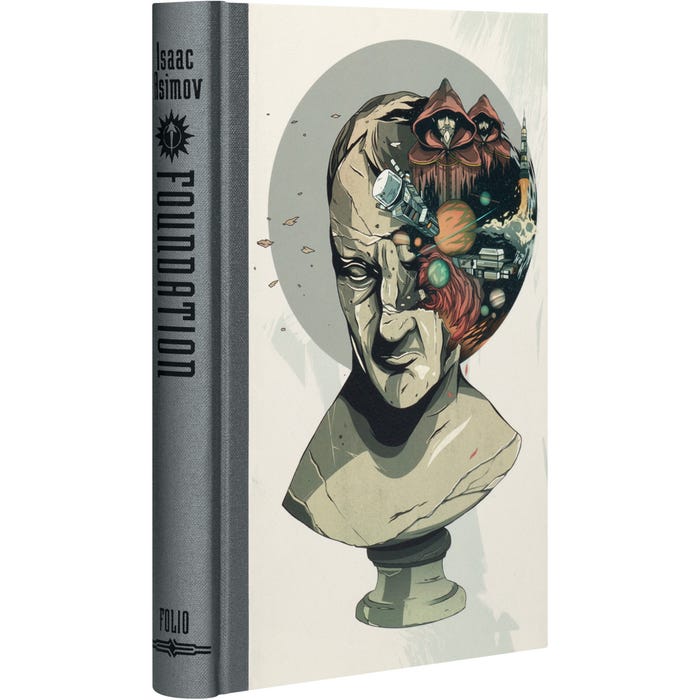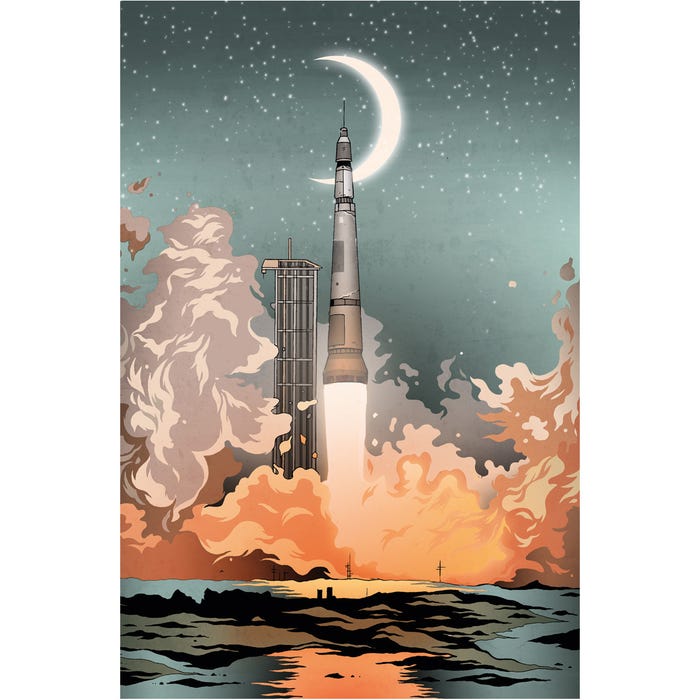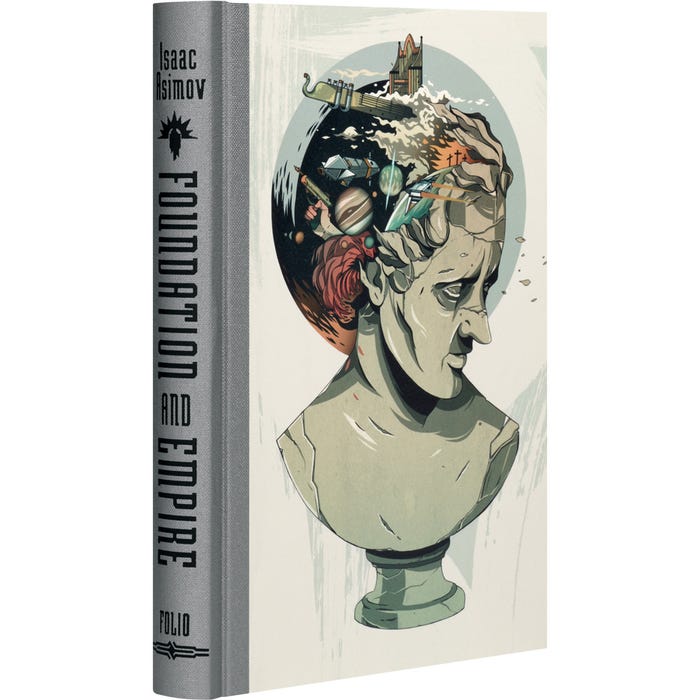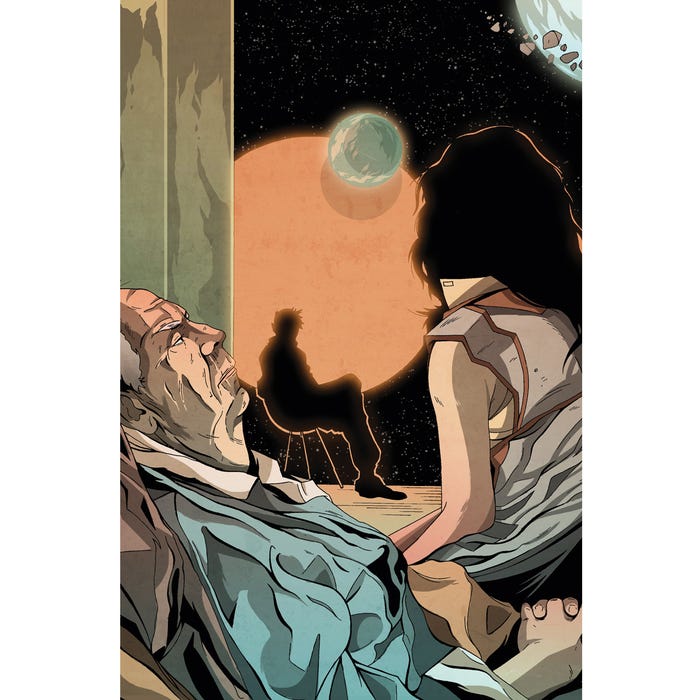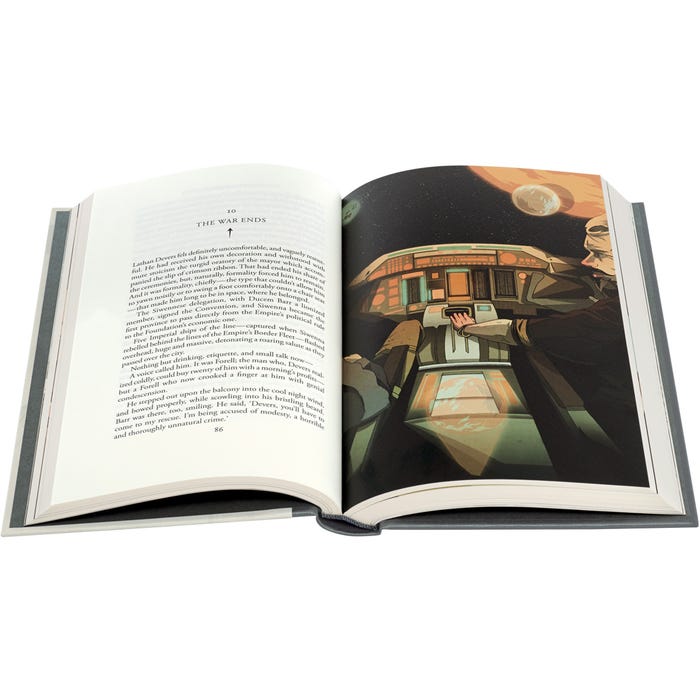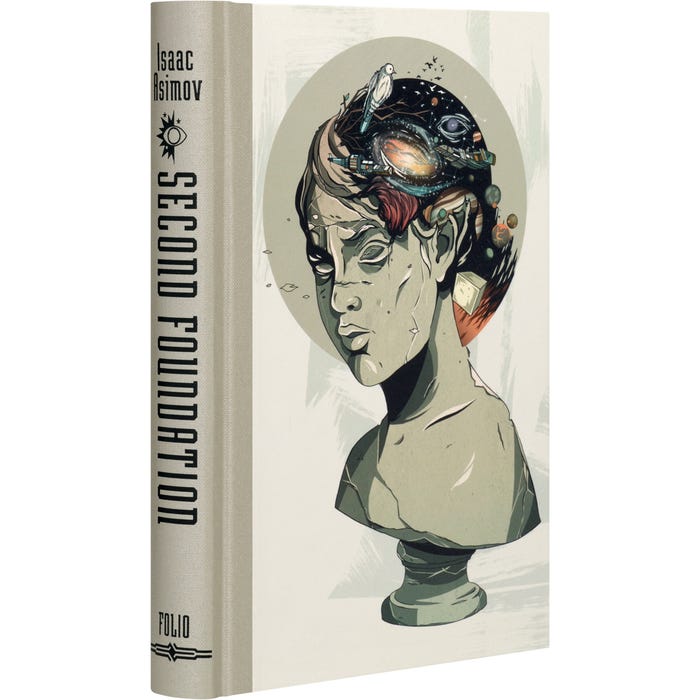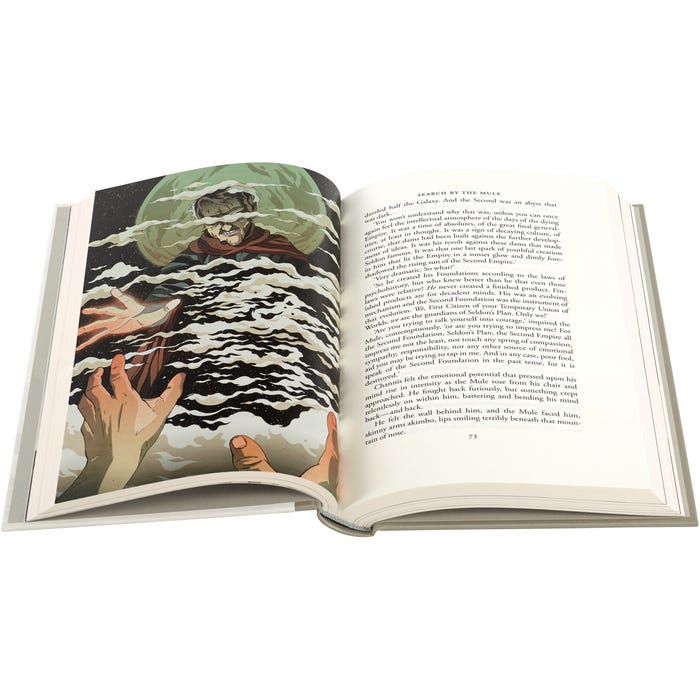The Foundation Trilogy
Illustrated by Alex Wells
Introduced by Paul Krugman
Presented as an extraordinary Folio Society edition, Isaac Asimov’s science-fiction epic The Foundation Trilogy is introduced by Nobel Prize-winning economist Paul Krugman and illustrated by British artist Alex Wells.
Product Gallery Thumbnails
‘For readers everywhere, these novels have probably served as inspiring introductions to future worlds, larger lives, and greater issues.’
- Guardian
Why do empires rise and fall? How is society best run? Can history be predicted? Isaac Asimov explores these fascinating ideas in a multi-layered, ingenious story that is as gripping today as when it was first published in 1942. Drawing on contemporary politics, ancient history and mathematics, Isaac Asimov’s masterpiece explores the decline of the Galactic Empire; a civilisation that ruled nearly 25 million inhabited planets.
This unique three-volume edition is introduced by leading economist and Nobel Prize-winner Paul Krugman, while the 21 startling, futuristic artworks have been created by talented British illustrator Alex Wells, who also illustrated the sell-out Folio edition of I, Robot.
Three volume set
Three-quarter-bound in buckram with printed paper front boards
Set in Garamond
792 pages in total
Frontispiece and 6 colour illustrations in each volume
Blocked slipcase
9˝ × 5¾˝
‘A unique masterpiece; there has never been anything quite like it’
- Paul Krugman
Paul Krugman is one of the world’s leading economists, a professor of Economics and International Affairs at Princeton University and a recipient of the Nobel Prize in Economic Science. In his exclusive introduction for this edition, he describes how The Foundation Trilogy inspired him to study economics, since it was the closest thing to the ‘psycho-history’ of the novel. ‘I grew up wanting to be Hari Seldon, using my understanding of the mathematics of human behaviour to save civilization.’
In 1941, the young scientist and writer Isaac Asimov was inspired by Edward Gibbon’s The History of the Decline and Fall of the Roman Empire – and by contemporary global politics – to write an epic for his own age about the decline and fall of a Galactic Empire. His protagonist, pyscho-history pioneer Hari Seldon, predicts galactic war and sets about establishing two Foundations; one to preserve Imperial knowledge, the other whose purpose and location are unknown. However, as the Foundation becomes strong enough to rival the dying Empire, the Galaxy is threatened by the Mule; a rogue warlord with the power to manipulate thoughts. When the Mule has all but conquered the Galaxy, the secretive Second Foundation is its only hope of salvation. The race is on to discover its location, but will the forces of good or evil reach it first?
Isaac Asimov is one of the great names of science fiction. He published more than 500 works, including the Hugo and Nebula award-winning Foundation Trilogy (1951–3; Folio edition 2012, 2021), The Gods Themselves (1972) and The Bicentennial Man (1976). He was born in Petrovichi, Russia, in 1920 and grew up in New York City. He studied at Columbia University, where he gained his MA and PhD in biochemistry. In between completing his studies he served with the US Naval Air Experimental Station during the Second World War. He later became a professor in biochemistry and published academic works, including Inside the Atom (1956), The Human Brain (1964) and Views of the Universe (1981). In 1987 he was awarded the SFWA Grand Master Award and in 1997 he was inducted into the Science Fiction Hall of Fame. He died in 1992 in New York City.
Alex Wells is a British illustrator living and working in Brighton. Wells works with clients around the world, on advertising and editorial commissions, including Pepsi, Apple, Sony, the New York Times, the Guardian and the Washington Post. The Foundation Trilogy was Wells’s first Folio Society commission and he has since worked on I, Robot.
Paul Krugman is professor of economics and international affairs at Princeton University, Centenary Professor at the London School of Economics and op-ed columnist for the New York Times. Krugman received the Nobel Memorial Prize in Economic Sciences in 2008. As well as published articles in Fortune, Newsweek, The New Republic and the New York Times Magazine, Krugman is the author of a number of books, including The Return of Depression Economics (2008) and End this Depression Now! (2013).





